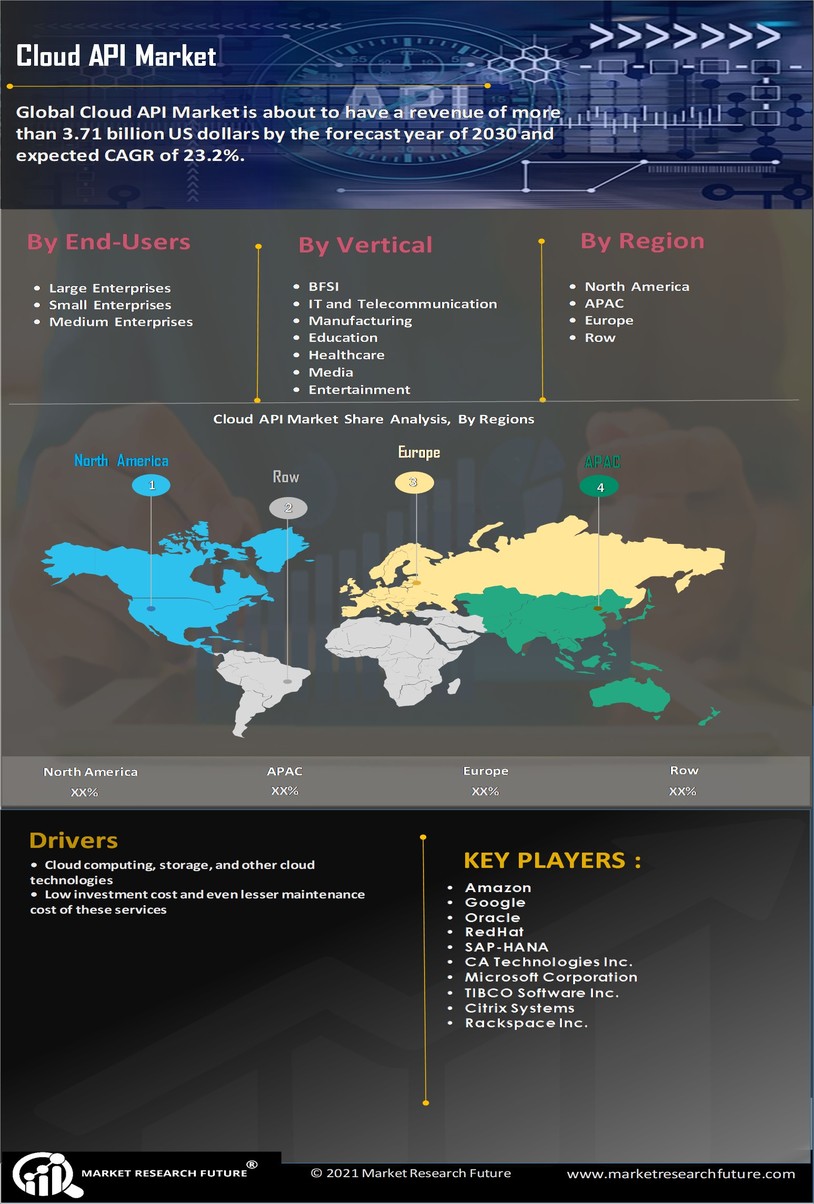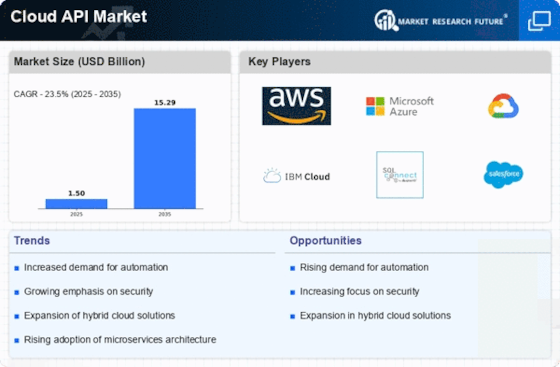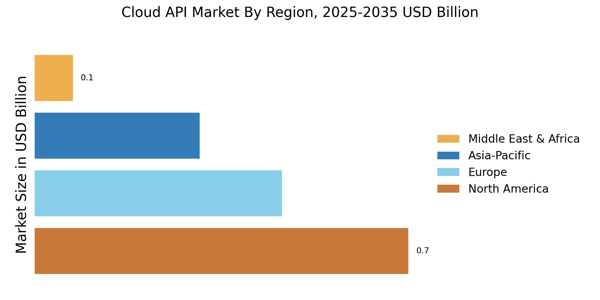Growing Demand for Scalability
The Cloud API Market experiences a notable surge in demand for scalable solutions. Organizations increasingly seek to enhance their operational efficiency and flexibility, which is facilitated by cloud APIs. As businesses expand, the need for scalable infrastructure becomes paramount. According to recent data, the cloud services market is projected to grow at a compound annual growth rate of over 20%, indicating a robust appetite for scalable cloud solutions. This trend is particularly evident in sectors such as e-commerce and finance, where rapid growth necessitates adaptable technology. Consequently, cloud APIs that offer seamless scalability are becoming essential for businesses aiming to maintain competitive advantages. The ability to scale resources up or down based on demand is a critical factor driving the Cloud API Market, as it allows organizations to optimize costs while ensuring performance.
Emergence of Hybrid Cloud Solutions
The emergence of hybrid cloud solutions is reshaping the Cloud API Market, as organizations seek to balance the benefits of public and private cloud environments. Hybrid cloud architectures allow businesses to optimize their IT resources while maintaining flexibility and control over sensitive data. Recent trends indicate that hybrid cloud adoption is expected to grow significantly, with many organizations recognizing the advantages of such models. Cloud APIs are essential in facilitating the integration of various cloud environments, enabling seamless data flow and application interoperability. This trend is particularly relevant for industries that require stringent compliance and security measures. As organizations increasingly adopt hybrid cloud strategies, the demand for cloud APIs that support these environments is likely to rise, driving further growth in the Cloud API Market.
Rise of Digital Transformation Initiatives
Digital transformation initiatives are reshaping the Cloud API Market, as organizations strive to modernize their operations. The integration of cloud APIs is a pivotal component of this transformation, enabling businesses to streamline processes and enhance customer experiences. Recent statistics suggest that over 70% of companies are prioritizing digital transformation, with cloud technologies at the forefront. This shift is driven by the need for agility and innovation in an increasingly competitive landscape. Cloud APIs facilitate the integration of various services and applications, allowing organizations to respond swiftly to market changes. As companies invest in digital transformation, the demand for cloud APIs is expected to rise, further propelling the growth of the Cloud API Market. This trend underscores the importance of cloud solutions in achieving strategic business objectives.
Increased Focus on Data-Driven Decision Making
The Cloud API Market is significantly influenced by the growing emphasis on data-driven decision making. Organizations are increasingly leveraging cloud APIs to access and analyze vast amounts of data, enabling them to derive actionable insights. This trend is supported by the fact that data analytics is projected to grow at a rate of approximately 25% annually. As businesses recognize the value of data in informing strategies, the demand for cloud APIs that facilitate data integration and analysis is on the rise. Cloud APIs provide the necessary tools for organizations to harness data effectively, leading to improved operational efficiency and enhanced customer engagement. This focus on data-driven approaches is likely to continue shaping the Cloud API Market, as companies seek to remain competitive in a data-centric environment.
Expansion of Internet of Things (IoT) Applications
The proliferation of Internet of Things (IoT) applications is a key driver of the Cloud API Market. As more devices become interconnected, the need for robust cloud APIs to facilitate communication and data exchange is becoming increasingly apparent. The IoT market is expected to witness substantial growth, with estimates suggesting it could reach several trillion dollars in the coming years. Cloud APIs play a crucial role in enabling IoT solutions by providing the necessary infrastructure for data collection, processing, and analysis. This integration allows businesses to develop innovative applications that enhance operational efficiency and customer experiences. As the IoT landscape continues to evolve, the demand for cloud APIs that support these applications is likely to expand, further driving the growth of the Cloud API Market.


















